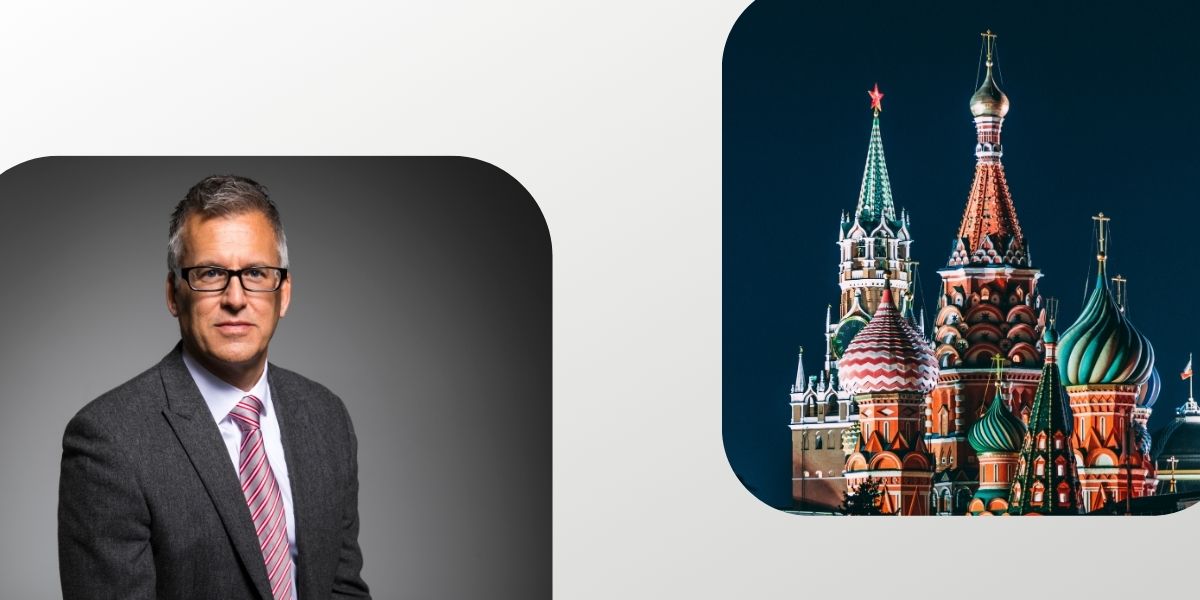

Students learning about Putin’s Russia didn’t expect to see their course syllabus change day after day. But that’s exactly what’s happening in a course taught this semester by Dr. Frederick White.
Dr. White’s course generally begins by covering the political structures in both imperial Russia and the Soviet Union, but then quickly concentrates on Vladimir Putin’s rise to power. But daily arrests of thousands of protesters in Russia, and Putin’s demand to squelch the uprising, are creating history-making events now. The protests were sparked by the arrest of anti-corruption activist Aleksei (Alexei) Navalny. Shortly after his arrest, a video was posted by Navalny’s supporters that documents the nearly 20 years of corruption that has made Putin and his closest allies incredibly rich. This video, which has, to date, been viewed on YouTube more than 86 million times, resulted in widespread protests throughout Russia.
The Kremlin’s harsh crackdown resulted in thousands of arrests. According to White, the strong response indicates Putin didn’t want to take any chances with these protests, which seem to be less in support of Navalny and more a reaction to the allegations of corruption and the abuse of political power.
“I thought that this course would be very timely, given the specter of Russia that has haunted the Trump Presidency,” said White. “However, I never anticipated that the situation with Navalny would escalate into political upheaval of this magnitude. This is the first real popular challenge to Putin’s presidency since 2012-13. We are studying history, foreign policy, and national security issues as they are being shaped.”
Although the timing was coincidental, White says his students have been excited by the parallels in their class lectures, assigned readings, and what they see in the news each day.
“I have really enjoyed how Dr. White has connected Russia’s history to its modern-day behaviors,” said one of the students in White’s class, political science major Sam Elzinga. “Russia’s history spans thousands of years, so its cultural memory is much longer than what we see in the United States. It’s integral, in my opinion, to understand how the Russian mindset developed over hundreds of years to better understand the modern way of Russian thinking. The situation in Russia with Navalny is definitely concerning to watch. Dr. White’s class has really helped show how these social movements in Russia can really only be incubated from the grassroots level in Russia.”
“I see the current situation in Russia as confirmation that the rhetoric we see from the Kremlin is not always shared by the populace,” said Zac Creer, a national security studies major also taking White’s class. “It gives me hope that relations between us might improve as a result of internal changes. This class has given me an appreciation for what we are studying, as it helps me to understand current events on multiple levels and more clearly see what led to what is going on and what it might lead to in the future. I see direct ties between our class discourse and the world around me.”
As the protests, and the semester, continue, White says that he hopes to show his students that protests and political action don’t arise out of of nowhere — that to really understand the motivations of mass political protest, one must examine the entirety of a situation, which, in this case, is the entirety of Putin’s regime.
“On the surface, we can understand that these protests are about political corruption, but to really understand why Navalny’s arrest (one of many) has finally resulted in such a violent political reaction, we must understand the antecedents that inform this protest,” White said. “In fact, it is not Navalny and his unfair arrest, but his willingness to keep raising the issue of Russian political corruption that has finally unified very diverse factions of the anti-Putin movement.”
Students in White’s class aren’t currently making foreign policy decisions, but these vital classroom discussions, in real time, will prepare them to make important strategic decisions for the United States.
“My favorite thing about UVU has been how professors can take the real world and apply it to the theory we are learning in class,” Elzinga said. “Dr. White, along with professors in the Russian, political science, and national security departments, has done an excellent job connecting the theoretical to the real, which is one of the main reasons I chose to attend UVU.”

